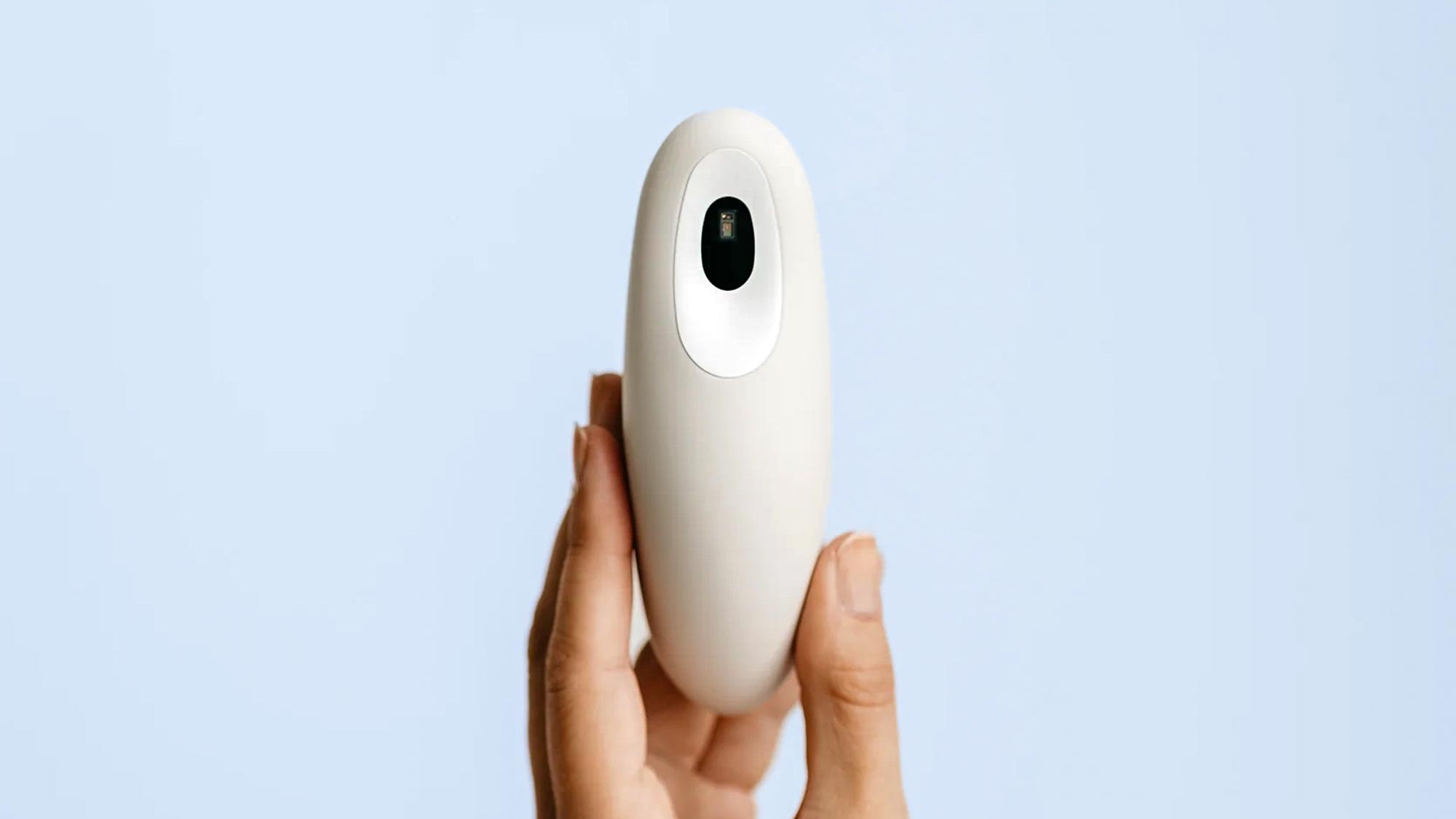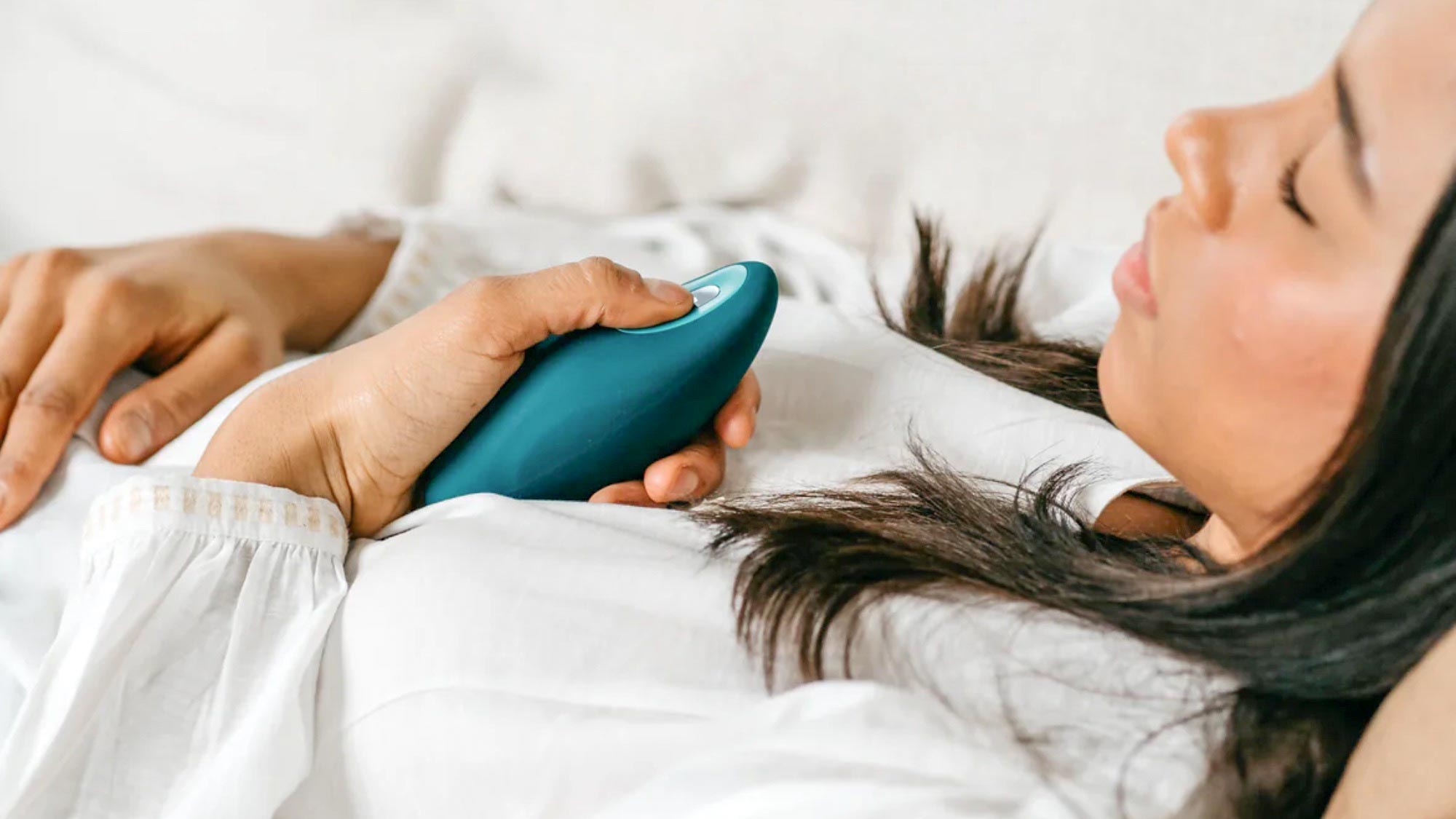
The benefits of breathwork are well documented, helping to regulate your nervous system and boost mindfulness while reducing anxiety for many. But do you need a vibrating handheld device to reap the rewards?
We know from yoga that pranayama — or breathwork — is a fundamental part of the practice and a main component of mindfulness and meditation. Many of the best smartwatches and fitness apps now include breathing exercises for free, and even my Oura Ring gives me short daily breathing routines in-app when I’ve sustained long periods in a stress state.
More recently, I’ve been spending time with Moonbird — a sleek handheld device that sits neatly in your palm and vibrates to various preset breathing rhythms from an app on your phone. But with plenty of free options available, do you really need a palm-sized device to help you breathe? I tested the Moonbird out — and here’s my verdict.
What happens to your body when you do breathwork?
There’s a lot of focus on building strength physically, yet it’s only relatively more recently that we talk about boosting mental strength and the importance of breathwork in regulating the nervous system.
The autonomic nervous system has two strands, both crucial for us humans: sympathetic (fight-or-flight) and parasympathetic (rest-repair). Should you find yourself in a dangerous situation, the sympathetic nervous system takes control, releasing hormones like adrenaline and cortisol to help keep you safe.
But it’s the ability to switch back to the parasympathetic nervous system and spend more time in a downtime state that is crucial for good health, and with modern-day stressors making it harder to achieve — enter, breathing exercises.
According to Garmin’s Fitness Report 2023, breathwork is officially a trend, and you don’t need to sit in a dark room or chant a mantra at the mirror either. Just a few minutes spent channeling and controlling your breath is enough to reduce stress and create calm.
There’s plenty of research knocking around like this study published in Frontiers showing slow-breathing control can regulate emotional and psychological wellbeing. Those who regularly practice breathing exercises report better sleep, mental clarity and mood, to name just a few benefits.
The benefits of breathwork are well documented, helping to regulate your nervous system and boost mindfulness.

Given that quick dopamine hits are readily available in far less healthy (yet quicker to access) places (scrolling memes on Instagram… guilty), it’s unsurprising we find breathwork a chore by comparison.
For that reason, I’m intrigued by devices that can consciously improve my breathing. I once tested Aerofit's respiratory training device to strengthen core muscles and improve breathing quality — and loved it.
After all, as a personal trainer and avid exercise fan, I know that breathing properly is crucial during workouts, helping to strengthen the diaphragm, engage your core muscles and improve physical and mental performance.
With that in mind, I got to work immediately testing out the Moonbird.
Moonbird: What is it, and does it work?

It’s well and good that breathwork is available to everyone in times of stress — your lungs are your main tool — but getting a little help is no bad thing, especially if you’re a breathwork beginner.
The gadget looks sexy, sure. Give it a shake and it turns on, then simply press your thumb against the sensor and follow along as the device expands and contracts, guiding you through slow breathing exercises to “relax mind and body” as you inhale and exhale.
Moonbird says the device is scientifically proven to improve sleep and stress, with over 400 therapists using it, even in session. The team even ran a sleep study, reporting that users found it easier to relax, focus and regulate breath when using the breathing coach. Some even reported decreased anxiety in just five minutes and faster sleep times as quick as eight minutes.
The Moonbird device comes with a downloadable app, but you don’t need to stare at a screen while you perform the breathing exercises, and your data is available in-app alongside customizable exercises. Plus, it’s fairly discreet, so if you happen to be on the subway or standing in a queue, you could whip it out pretty casually.
However, at $199 a pop (no subscription required), is the Moonbird fad or fab?
Moonbird breathing device — here’s my verdict
What I love about the wellness gadget is that it makes breathing exercises bitesize (great if you procrastinate over these things) and the physical presence of a device prompts me to use it.
As a 33-year-old female diagnosed with ADHD only a while ago, I’m still finding ways to manage the many, many associated quirks, and having the Moonbird on my desk or by my bedside makes it easier to instill the habit.
Although some effects of breathing exercises are fast, like anything in life, a regular mindfulness practice will get you the best results. Just like building muscle or strength in the gym, these things take time and help you build healthier habits. Ultimately, it helps prepare you to be more resilient in testing times that might happen in the future.
When using the device daily, it had an instant positive effect on my mood. But as someone who suffers from heightened bouts of anxiety, the impact has been short-lived, and personally, physical exercise is still the better option for me when I’m in these moments.
However, it’s no shock that using the Moonbird before bed is proving far more relaxing than doomscrolling on my phone, and having something to hold is comforting.
If you like tech and, like me, find personal progress data interesting, this device could be for you, but given the number of wearables offering a similar service for free, I’m not sure I’d spend the pricey $199 for one.







